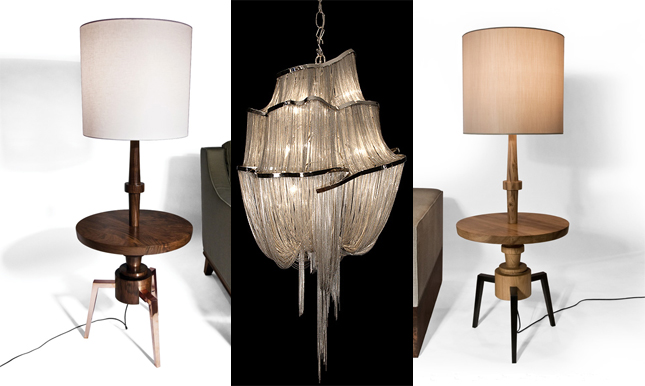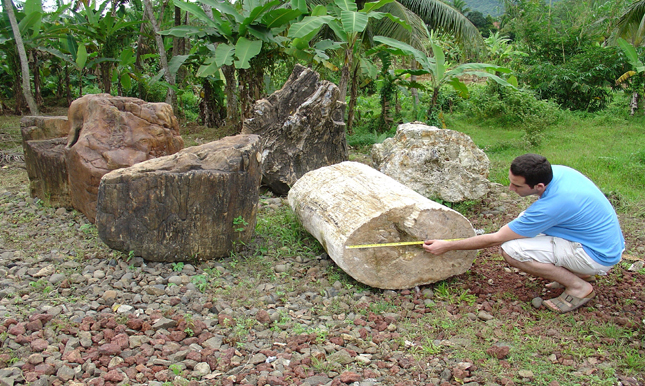Barlas Baylar and the Atlantis Aesthetic
Looking back to shape the future.
It is an approach based on direct experience, it is a lifestyle in itself in addition to being an aesthetic that embraces the without from the within: it is the anthem of modern design in upscale furniture that has been gracing celebrity mansions and high-profile residences. Not an aspiration towards personal statements or expressions, such pieces appear both solemn and spontaneous, planned by man and yet crafted by nature herself. Thus is the utilitarian ethos revealed despite the strictest prohibitions against schools of thought and their theories. Thus are frivolities suggested to untutored eyes and sensibilities as the subtlety of its materials give the noblest elegance – which is to say the most prescient of quietude – to a piece honestly crafted, bearing no thought of accolade or sale.
At a time when traditional skills have been shunned and modernity is identified with the machine, there had been a reaction or, to be more precise, a comeback of the ancient, almost stoic, ethic equating being with doing. That is why there can be no theory of design and no “movement” of the arts: such terms belong to metacognition, not the all-powerful and all-pervasive wider context that is the human unconscious. That is why truly spontaneous furniture, like calligraphy, must arise out of its materials and cannot be only assembled of them. And that is why such an art can only be learned, not taught.
An ironic term, “art,” implying the artifice at the center of reinterpreting nature. But even as an actress may by her most cunningly depicted show demonstrate a truth unattainable otherwise, so too might artists and artisans embody the necessary work of it all in spite of the sophist’s objections; after all, civilization must have its furnishings. Yet the return to traditional ways in contemporary design has found its place in the most modern of settings, sleek when nature is thickly obtuse, minimal when nature had gone wild with unmediated growth. This is the modern furniture maker, one such as Barlas Baylar, who integrates the needs of contemporary society with the secrets handed down through the ages by village masters simply plying their craft.
A job well-done is the craft of such ancients. Theirs was not a world of art criticism and revolving fashions, but pride of work in visions that will never be ossified by theory. Intimately conscious of themselves as a part of the natural cycle, no distinction was made between nature’s discards and nature herself. In our increasingly crowded world, where digital communications can make neighbors seem too close and invite governments into our very beds, such so-called folk art is a reminder and a triumph of the human spirit. Or as George Nakashima wrote, “it might even be a question of regaining one's own soul when desire and megalomania are rampant – the beauty of simple things.”






